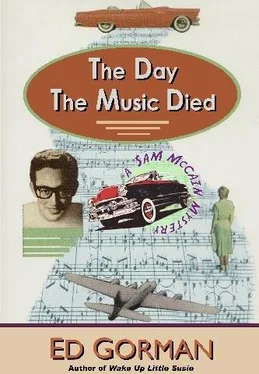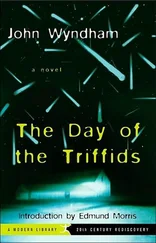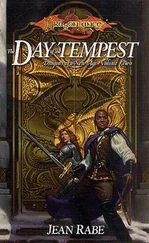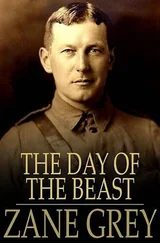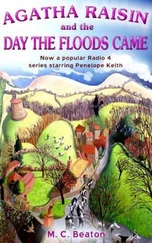Ed Gorman - The Day The Music Died
Здесь есть возможность читать онлайн «Ed Gorman - The Day The Music Died» весь текст электронной книги совершенно бесплатно (целиком полную версию без сокращений). В некоторых случаях можно слушать аудио, скачать через торрент в формате fb2 и присутствует краткое содержание. Жанр: Криминальный детектив, на английском языке. Описание произведения, (предисловие) а так же отзывы посетителей доступны на портале библиотеки ЛибКат.
- Название:The Day The Music Died
- Автор:
- Жанр:
- Год:неизвестен
- ISBN:нет данных
- Рейтинг книги:3 / 5. Голосов: 1
-
Избранное:Добавить в избранное
- Отзывы:
-
Ваша оценка:
- 60
- 1
- 2
- 3
- 4
- 5
The Day The Music Died: краткое содержание, описание и аннотация
Предлагаем к чтению аннотацию, описание, краткое содержание или предисловие (зависит от того, что написал сам автор книги «The Day The Music Died»). Если вы не нашли необходимую информацию о книге — напишите в комментариях, мы постараемся отыскать её.
The Day The Music Died — читать онлайн бесплатно полную книгу (весь текст) целиком
Ниже представлен текст книги, разбитый по страницам. Система сохранения места последней прочитанной страницы, позволяет с удобством читать онлайн бесплатно книгу «The Day The Music Died», без необходимости каждый раз заново искать на чём Вы остановились. Поставьте закладку, и сможете в любой момент перейти на страницу, на которой закончили чтение.
Интервал:
Закладка:
She would, anyway, if I could ever find her.
I spent my first half-hour skating around the rink looking for her. To no avail. Not a sign of her on the rink or in the warming house.
As for the skating, I stuck to the outside of the rink. Fewer people noticed me falling down that way. Every once in a while, I’d get going pretty well and I’d think that I’d suddenly somehow mastered the ice, and then the ice would dump me again. It’s not good for your ego to have five-year-old girls giggle and point at you.
I was going to give them the bird but then I thought that that probably wouldn’t look real mature on my part.
I was thinking about going home-I was spending more time on my butt than on my blades-when Mary Travers slipped an arm through mine and drew me out into the center of the rink where the grown-ups and young show-offs were skating. She smelled wonderful, and looked even better, her jaunty raspberry-colored beret angled beautifully across her silky chestnut-colored hair and her cheeks tinted with the night’s air.
She wore a heavy turtleneck sweater that matched her beret, jeans and a pair of white high-top skates that flashed artfully whenever she made one of her elegant, practiced moves.
“You should hire me, McCain.”
“For what?”
“To teach you how to skate.”
“You don’t think I’m any good?”
“I saw those little girls laughing at you.”
“Yes, and I’m planning to sue them, too.”
She laughed and squeezed my arm tighter and took me around the rink. It was fun. I didn’t have to do anything. She was strong and fleet enough for both of us.
She said, “I don’t see Pamela anywhere.”
“Well, I don’t see our friendly druggist -i.e., your fianc@e-anywhere, either.”
“He’s at a city council meeting.”
I was going to say something snide but decided against it. She deserved her happiness. She was the most decent person I’d ever known, and if I could have, I would have fallen in love with her in a second. I wanted her to be happy.
“Does he know you’re here?” I said.
“No.”
“How’d you manage that?”
“I didn’t. I just told him I wasn’t sure what I was going to do.”
“So you came out here?”
“Looks that way, doesn’t it?” She smiled but I could see the sadness in her eyes this time, the sadness I always put there without meaning to.
We skated some more. I kept looking around for Pamela.
Mary said, “I really don’t want to marry him, McCain.”
“I know.”
“He always reminds me I’m from the Knolls, like he’s doing me a favor or something by marrying me.”
“So why don’t you just call it off?”
“I want kids.”
“His kids?”
“Well…”
We skated some more. She kept good strong hold of my arm. You could smell stove smoke from the warming house and every once in a while somebody would skate by with a hot dog and you could smell mustard and ketchup.
“He’s going to build them a house.”
“Build who a house?” I said.
“My folks.”
“He’s going to build your folks a house?”
“That’s going to be my wedding present.”
“Wow.”
“He owns this land up on Ridgedale, where they’re putting in a new development. That’s where he’s going to build it. They’ll be out of the Knolls and into a brand-new house. He’s even going to furnish it for them.”
I looked at her. “And he’s going to hold it over your head the rest of your life.”
A male voice came on the loudspeaker and said, “We’d like to have a moment’s silence to commemorate the deaths of the fine young men who died in a plane crash not very far from here.”
And I kind of felt it, even though all the other stuff was going on, Kenny and Susan dead and Ruthie pregnant and Mary marrying the wrong man-even with all that turmoil, there was still room to think about Buddy Holly and Richie Valens and the Bopper and to feel sorry for them and their families. I know they say that young men consider themselves invincible. I guess that changed for me a couple of years ago when I was doing my stint as a weekend warrior with the National Guard. I’d wanted to go on to law school so the Guard was the only way I could avoid the draft.
One rainy Saturday when I was off-loading a supply truck in the warehouse, this skinny kid from Cedar Rapids hops in another truck and tromps on the gas. He always liked to lay down a strip of rubber in reverse. The sound echoing off the warehouse ceiling was pretty cool, I had to admit. He always ended his routine wascoming within inches of the wall behind him and then slamming on the brakes. Everybody liked to watch him. He was a crazy son of a bitch.
But this one day Belaski, this Polish farmer, he was walking behind the truck when the kid was backing up at sixty miles an hour. And the kid didn’t see Belaski and, no matter how loud we screamed, he didn’t hear us warning him about Belaski, either. It’s a terrible way to put it, but he just squashed Belaski against the concrete block wall like a bug. Belaski popped and oozed like a bug, too. The major on duty that weekend made me and my friend and fellow law-school partner Dick Freidman clean up with a hose after the ambulance took Belaski away. No more sense of invincibility for me. Not ever again. And I thought of Belaski now as Mary and I stood there on the skating rink. And I got sad and scared and confused the way I do sometimes because no matter how we try to explain it-through religion or randomness, it doesn’t matter-existence just doesn’t seem to make any sense.
I had a philosophy instructor at the U of I say that the only question that mattered in all of philosophy was Verlaine’s “Why are we born to suffer and die?” All else was irrelevant, my instructor said. And sometimes, without wanting to, I let myself slip into that frame of mind.
But I never stayed there long. I was afraid to.
Even if it all ultimately means nothing, you’ve got to play the game not only for yourself but for the people you love.
Like looking around at the rink now. All the generations. And mostly good people, too. Handing down the best and most sacred things from one era to another.
They made me feel good, these people, watching them tonight. They had a real dignity, the grandfather showing the five-year-old how to skate, the ten-year-old boy blushing when the girl next door took his hand, the six or seven black couples up here with their kids, joining in and being welcomed. Maybe life didn’t make sense but then it was our business, I guess, to impose meaning on it.
I said, “How about a walk?”
“Sure. Where?”
“Oh. Through the woods, I guess. There’s a full moon and plenty of light.”
“Great,” she said.
So we changed into our boots and went for a walk.
We found a winding trail through the low-hanging boughs, still heavy with snow that gleamed blue and silver in the moonlight. The noise and lights of the rink stayed with us for a time, like a memory you don’t quite want to let go of, but then we were in the darker woods, and the silence was deep and wide, broken only by the crunch of our footsteps on the snow and sticks in the path. I knew this area pretty well. My dad and I used to hunt out here. He wasn’t very good and I was worse and in all our years of trying, I don’t think we ever got anything, which was fine with me. I look at dead deer roped across car roofs and it either pisses me off or depresses me.
We came to an open field at the base of a steep, clay cliff. There was a small circular pond where kids swim in the summer.
They also push rowboats and canoes in the water and play around. The pond is too small for motor boats. It was pretty, the pond, and the snow ridged around it, all shimmery and gleaming in the moonlight. The cliffs looked rugged and red and the jack pines atop them were silhouetted perfectly against the winter clouds. Far off, you could hear dogs, and then semis on the highways and then, closer by, the faded forlorn bay of a coyote.
Читать дальшеИнтервал:
Закладка:
Похожие книги на «The Day The Music Died»
Представляем Вашему вниманию похожие книги на «The Day The Music Died» списком для выбора. Мы отобрали схожую по названию и смыслу литературу в надежде предоставить читателям больше вариантов отыскать новые, интересные, ещё непрочитанные произведения.
Обсуждение, отзывы о книге «The Day The Music Died» и просто собственные мнения читателей. Оставьте ваши комментарии, напишите, что Вы думаете о произведении, его смысле или главных героях. Укажите что конкретно понравилось, а что нет, и почему Вы так считаете.
